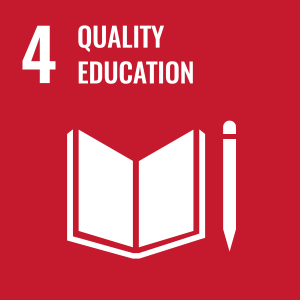
Dr Doris Dippold
About
Biography
I am Associate Professor in Intercultural Communication at the School of Arts, Humanities and Creative Industries and Interdisciplinary Principal Fellow of the Institute for People-Centred AI. My career in higher education so far has taken me to three continents and five countries (Germany, USA, China, Luxembourg, UK).
My research interests focus on the following, often in combination
- Human-AI Interaction
- Chatbots
- Conversation Design
- (Intercultural) Pragmatics
- Interactional Sociolinguistics
- L2 Learning and Teaching
- Internationalisation of Higher Education
- English as medium of instruction
- English as a lingua franca
- Classroom interaction
Areas of specialism
University roles and responsibilities
- Programme Director, MA in Intercultural Business Communication and Marketing
- Co-Organiser of SURGE community of practice (Surrey University Reflections on Generative AI in Education)
- Co-Director, Surrey Language, Literacies and Learning Research Group
My qualifications
Business, industry and community links
News
ResearchResearch interests
- Human-AI interaction, in particular chatbots and conversation design
- Accessibility, usability and user experience of conversational AI
- Conversational AI in culturally diverse contexts
- Internationalisation of Higher Education
- Classroom interaction in Higher Education
- Intercultural communication, in particular intercultural pragmatics and interlanguage pragmatics
Research projects
GPs traditionally use letters/phone calls to invite patients to health screening appointments. Attending screening regularly is important as it could lead to the early detection of more serious conditions. However, traditional
appointment invitations create high workload for surgery staff and sometimes do not lead to high levels of patient engagement with screening. People from ethnic minority groups sometimes experience problems in accessing and taking up health care appointments in primary care, including cervical screening. Cervical screening is a health test that aims to identify whether people with a cervix are at risk of cell changes, or conditions such as cancer.
This project aims to understand whether an automated virtual receptionist (VR) that uses Chatbots (computer programs that simulate and process human conversation) would be useful for patients/informal carers when booking cervical screening appointments. It aims to understand whether patients/informal carers like/dislike the VR and if it could improve decisions to book cervical screening. We want to know if the VR uses words and sentences which make sense to patients/informal carers and to learn what improvements are needed to make it work better for people from different ethnic groups. By asking about the VR we will be better able to improve access to screening and reduce health inequalities.
We aim to interview up to 30 patients/informal carers at one general practice in England, to gather a wide variety of views from white and ethnic minority groups. We will interview patients/informal carers who have already used VR, yet to try it, and those hesitant or unsure whether they want to use it. Data from the interviews will be analysed to find patterns in patients’/informal carers' views and opinions. These will then be used to make improvements to the VR to make it better for a range of patients, including patients from ethnic minority groups.
“Duo says - ‘nicely done!” Linguistic minority families, emerging digital technologies, and the raising of bilingual childrenAmidst globalisation and migration, parents investing time and labour into raising bi – or multi -lingual children isn’t new. Yet, the growing domestication of both higher end and more affordable technologies - to support music, vocabulary, grammar or conversation in the minority language - signals a socio-material shift. This pilot project investigates parents’ and children’s experiences of emerging digital technologies in developing children’s bilingualism, in linguistic minority households. We combine a survey of parents with three waves of observations and retrospective interviews with 10 households in south-east England, and ask – what role do these technologies play in linguistic minority families? (How) do they facilitate bilingual language development? How do they interface with parental anxieties and aspirations? (How) do children’s and parents’ experiences with these technologies align with or deviate from each other? What new inequalities arise or are reinforced as a consequence of the adoption of these socio-material resources?
Research collaborations
Collaboration with SPRYT to improve the language design of their medical appointment booking chatbot.
Collaboration with Islington GP Federation to investigate the implementation of a medical appointment booking chatbot for cervical cancer screening bookings.
Collaboration with Account Management Limited (AMO) to imporive interaction patterns in an automated chatbot, funded by an Innovation Voucher.
Indicators of esteem
Co-convenor of HUMALA (Humans, Machines, Language), a Special Interest Group of the British Association of Applied Linguistics
Interdisciplinary Principal Fellow of the Surrey Institute for People Centred AI
University of Surrey 'Innovator of the Year' 2020
Research interests
- Human-AI interaction, in particular chatbots and conversation design
- Accessibility, usability and user experience of conversational AI
- Conversational AI in culturally diverse contexts
- Internationalisation of Higher Education
- Classroom interaction in Higher Education
- Intercultural communication, in particular intercultural pragmatics and interlanguage pragmatics
Research projects
GPs traditionally use letters/phone calls to invite patients to health screening appointments. Attending screening regularly is important as it could lead to the early detection of more serious conditions. However, traditional
appointment invitations create high workload for surgery staff and sometimes do not lead to high levels of patient engagement with screening. People from ethnic minority groups sometimes experience problems in accessing and taking up health care appointments in primary care, including cervical screening. Cervical screening is a health test that aims to identify whether people with a cervix are at risk of cell changes, or conditions such as cancer.
This project aims to understand whether an automated virtual receptionist (VR) that uses Chatbots (computer programs that simulate and process human conversation) would be useful for patients/informal carers when booking cervical screening appointments. It aims to understand whether patients/informal carers like/dislike the VR and if it could improve decisions to book cervical screening. We want to know if the VR uses words and sentences which make sense to patients/informal carers and to learn what improvements are needed to make it work better for people from different ethnic groups. By asking about the VR we will be better able to improve access to screening and reduce health inequalities.
We aim to interview up to 30 patients/informal carers at one general practice in England, to gather a wide variety of views from white and ethnic minority groups. We will interview patients/informal carers who have already used VR, yet to try it, and those hesitant or unsure whether they want to use it. Data from the interviews will be analysed to find patterns in patients’/informal carers' views and opinions. These will then be used to make improvements to the VR to make it better for a range of patients, including patients from ethnic minority groups.
Amidst globalisation and migration, parents investing time and labour into raising bi – or multi -lingual children isn’t new. Yet, the growing domestication of both higher end and more affordable technologies - to support music, vocabulary, grammar or conversation in the minority language - signals a socio-material shift. This pilot project investigates parents’ and children’s experiences of emerging digital technologies in developing children’s bilingualism, in linguistic minority households. We combine a survey of parents with three waves of observations and retrospective interviews with 10 households in south-east England, and ask – what role do these technologies play in linguistic minority families? (How) do they facilitate bilingual language development? How do they interface with parental anxieties and aspirations? (How) do children’s and parents’ experiences with these technologies align with or deviate from each other? What new inequalities arise or are reinforced as a consequence of the adoption of these socio-material resources?
Research collaborations
Collaboration with SPRYT to improve the language design of their medical appointment booking chatbot.
Collaboration with Islington GP Federation to investigate the implementation of a medical appointment booking chatbot for cervical cancer screening bookings.
Collaboration with Account Management Limited (AMO) to imporive interaction patterns in an automated chatbot, funded by an Innovation Voucher.
Indicators of esteem
Co-convenor of HUMALA (Humans, Machines, Language), a Special Interest Group of the British Association of Applied Linguistics
Interdisciplinary Principal Fellow of the Surrey Institute for People Centred AI
University of Surrey 'Innovator of the Year' 2020
Supervision
Postgraduate research supervision
I am currently supervising research students in the following areas as first or second supervisor):
- AI- enabled digital accessibility in the public services
- The impact of the use of generative artificial intelligence by the teaching staff in teaching and learning in the UK
- Language Variation in Human-Machine Conversations
- How does a multilingual context affect communication for practitioners working in high-risk environments?
- Doctoral students’ reading challenges and metacognitive reading strategies
- Exploring equivalence from the perspective of function and culture in natural heritage sites tourism in Thailand and the USA.
- English as a medium of instruction in China: Classroom practices
- The effect of explicit instruction of formulaic expressions on the pragmatic competence of Saudi EFL Learners
- Unravelling the potential of early trilingual acquisition: towards the implementation of practices ensuring children’s inalienable right to learn and use the language, customs and religion of their family
Past supervision includes:
- (Im)politeness at a Slovenian Call Centre
- Politeness and Face Manifestation in Thai Hospitality Settings: An Investigation of Interpersonally-Sensitive Activities
- Mitigation and Facework: The Role of the German Modal Particle mal in Reality TV Talk
- An ethnographic study of international students’ engagement in theatre societies
- An investigation into the comprehensive development of L2 pragmatic competence in the EFL classroom: A case of advanced Serbian EFL learners
- Developing speaking skills of ELI Saudi students at KAU by adopting a communicative language teaching (CLT) approach
- An investigation of the factors affecting self-regulatory capacity of intentional vocabulary learning among Saudi EFL learners: a mixed methods study
- The pragmatic performance of refusals and influence of social distance: a study of Jordanian higher education students in the UK
I welcome research proposals in all my current research interests, in particular those addressing real-life problems!
Teaching
Doris is programme director of the MA in Intercultural Business Communication and Marketing.
Doris is currently teaching at postgraduate level:
- CMCM064: Research Skills for Business and Marketing Professionals
- CMCM057: Globalisation: Theories, Discourses and Practices
- CMCM068: Intercultural Communication in Professional Contexts.
- CMCM067: Dissertation
Sustainable development goals
My research interests are related to the following:



Publications
This dataset includes data from a project investigating patient perceptions of and patient interaction patterns with a medical appointment chatbot. The dataset consists of a survey of 300 NHS patients eligible for cervical screening and of 7 interviews with patients at an NHS surgery in North London. The data detailed in this paper have the potential to be reused to inform the development conversational AI systems for the public and health services.
In the spring of 2020, English language teachers around the world were forced to rapidly start teaching in a completely online space, often with relatively little experience of online teaching, and with few opportunities for preparation. Recognising the centrality of speaking for learning, this study investigated affordances of teaching speaking online, a relatively unexplored area. Fifty-two language teachers in higher education contexts internationally completed a survey. Drawing on a framework of dialogic teaching, the findings show that teaching speaking online offers some unexpected affordances relating to the dialogic teaching principle of supportive teaching. In addition, teachers reported being able to use the online space for purposeful planning of online lessons. However, the online space is less conducive to enabling reciprocal, deliberative, and cumulative classroom talk, key features of higher education discourses. We end the paper with practical recommendations for how to ensure that dialogic teaching dimensions are not lost in an online space.
Designing chatbots that provide a good user experience, guide users to their goals, and are inclusive and accessible is vital to ensure that key public and commercial services are available to a wide range of users who hold varying social norms and exhibit different patterns of social interaction. However, chatbot design can be undermined by a lack of consideration of user needs and LLMs that are not fine-tuned to account for these differences. Using examples from the testing and development of a medical appointment booking chatbot, this paper showcases how the established methods, approaches and insights of intercultural pragmatics can be used to optimise the dialogue design of chatbots and improve the intent recognition of the language models which drive them. Specifically, this work draws on the CCSARP framework for classification of requests and the GAAFFE framework, which were applied to both naturally occurring and simulated data. The paper also discusses the boundaries and limitations of these approaches.
State-of-the-art natural language processing (NLP) models are trained on massive training corpora, and report a superlative performance on evaluation datasets. This survey delves into an important attribute of these datasets: the dialect of a language. Motivated by the performance degradation of NLP models for dialectal datasets and its implications for the equity of language technologies, we survey past research in NLP for dialects in terms of datasets, and approaches. We describe a wide range of NLP tasks in terms of two categories: natural language understanding (NLU) (for tasks such as dialect classification, sentiment analysis, parsing, and NLU benchmarks) and natural language generation (NLG) (for summarisation, machine translation, and dialogue systems). The survey is also broad in its coverage of languages which include English, Arabic, German, among others. We observe that past work in NLP concerning dialects goes deeper than mere dialect classification, and extends to several NLU and NLG tasks. For these tasks, we describe classical machine learning using statistical models, along with the recent deep learning-based approaches based on pre-trained language models. We expect that this survey will be useful to NLP researchers interested in building equitable language technologies by rethinking LLM benchmarks and model architectures.
It has been well established that for all students, but particularly second language (L2) English speaking students, academic English speaking skills are key to developing specialist terminology and disciplinary content in an English as a medium of instruction (EMI) context. However, what is less clear in many contexts is the institutional language policy necessary to guide and support both L2 English speaking students and disciplinary tutors. In this paper we focus on disciplinary tutors’ beliefs of language and their roles with respect to language support to surface implicit and covert language policies. We argue that in the absence of explicit policy, showcasing the range of tutor perspectives and practice around language support can provide a way forward in explicating good practice and highlighting an approach in which all stakeholders take responsibility for supporting students’ academic speaking skills in an EMI context.
Repair describes the process through which participants in conversation address problems in speaking, understanding, and hearing. In interactions with AI-driven chatbots, user repair addresses chatbots' lack of understanding or misunderstanding of the user's intent. This paper represents a user-centred description of user repair strategies in interactions with a task-oriented chatbot. It is based on the analysis of simulated user interactions with a chatbot facilitating health appointment bookings. The analysis shows that the repair strategies which users draw on most frequently (e.g., rephrasing) are not necessarily the ones which prompt the bot to correctly recognise intent and provide relevant responses, whereas the less frequently used self-repair strategies (e.g. restating the intent) are more successful in achieving intent recognition. This suggest that the rules of interaction with conversational AI need to be made explicit to users as they lack familiarity with the context, limitations and patterning of interactions facilitated through AI. •When bots misunderstand or do not understand user intent, users perform repair.•Repair strategies used include e.g., rephrasing, repetition, accommodation.•Users transfer repair strategies from human interaction into bot interactions.•Users deploy the more successful repair strategies less frequently and vice versa.•The rules of communication with conversational AI need to be made more explicit.
This chapter provides a snapshot of the main research trends of classroom interaction within disciplinary contexts. The discipline with the richest body of research on classroom interaction in higher education (HE) is undoubtedly the second language classroom. The body of literature on second language classroom interaction is largely rooted in the communicative language teaching approach (CLT). In a CLT environment, the aim is to fulfil the communicative purpose of the activity, which requires students to interact with each other orally and through semi-structured tasks. Many monograph-length treatments of classroom interaction in a language learning context focus on the relationship between classroom interaction and pedagogy. Different strands of research support different conceptualisations of language and interaction in the classroom. Issues of how classroom talk supports pedagogy are currently primarily discussed in the literature on the second language classroom, and in studies emerging from school settings.
State-of-the-art natural language processing (NLP) models are trained on massive training corpora, and report a superlative performance on evaluation datasets. This survey delves into an important attribute of these datasets: the dialect of a language. Motivated by the performance degradation of NLP models for dialectic datasets and its implications for the equity of language technologies, we survey past research in NLP for dialects in terms of datasets, and approaches. We describe a wide range of NLP tasks in terms of two categories: natural language understanding (NLU) (for tasks such as dialect classification, sentiment analysis, parsing, and NLU benchmarks) and natural language generation (NLG) (for summarisation, machine translation, and dialogue systems). The survey is also broad in its coverage of languages which include English, Arabic, German among others. We observe that past work in NLP concerning dialects goes deeper than mere dialect classification, and . This includes early approaches that used sentence transduction that lead to the recent approaches that integrate hypernetworks into LoRA. We expect that this survey will be useful to NLP researchers interested in building equitable language technologies by rethinking LLM benchmarks and model architectures.
The beliefs that we have about language are called language ideologies and influence how we create and use language technologies. In this paper, we explore language ideologies and their role in the process of language technology design using conversational technology as an illustrative example. We draw on two qualitative studies, both of which aim at discovering common language conceptualisations in the context of language technology design through collaborative work with study participants. In study 1, we use a survey, group discussions and co-design methods with technology developers. In study 2, we use a survey and group work with technology users. We found that standard language ideology is intertwined with a referential (language in its function to convey information) view on language data in the development process, and that a conceptualization of language as referential tool dominates the language technology landscape. However, participants in both qualitative studies are aware of other functions of language. Further we found that language ideologies are intertwined with public discourse about language technology, and upcoming policies on AI regulation will reinforce these ideologies. We argue that non-referential functions of language must be integrated into language models, and that the actual practices of both language and language technologies must be carefully considered for improved conversational AI and effective policies.
Although participation in academic speaking events is a key to developing disciplinary understanding, students for whom English is a second language may have limited access to these learning events due to an increasingly dialogic and active higher education pedagogy which places considerable demands on their oracy skills. Drawing on the Oracy Skills Framework we explore disciplinary tutors' and students' expectations of oracy skills required for disciplinary study. An analysis of both quantitative and qualitative data found that disciplinary tutors placed importance on the cognitive dimension of oracy skills such as argumentation and asking questions, whilst students placed importance on linguistic accuracy. The findings also suggest that tutors and students lack a shared metalanguage to talk about oracy skills. We argue that a divergence of expectations and lack of shared terminology can result in compromising students' access to valuable classroom dialogue. The paper concludes with a number of practical suggestions through which both tutors and students can increase their understanding of oracy skills.
This paper introduces a more nuanced view of face and facework than the commonly used frameworks in interlanguage pragmatics. It argues that ILP not only prioritizes research on the expression of politeness in the L2 and the acquisition of politeness strategies, but that the field also does that in at? extremely decontextualized manner that takes little account of the situatedness of linguistic discourse. Moreover, the paper suggests that existing accounts office and facework with their focus on politeness alone may not be sufficient to capture speakers' projection of other aspects of self-hood, i.e. the social identities and/or attributes that they want to foreground and be attributed with in particular situations.By analyzing an argumentative conversation of two L2 learners of German, the paper shows different ways in which self-presentation is performed, e.g., by the way speakers organize their turns, the way they modalize their discourse, and the way they use markers of reference and identity. It then argues that the field of interlanguage pragmatic should move away from its focus on politeness in a limited set of speech acts and focus also on self-presentation.
This paper argues that the field of interlanguage pragmatics – the study of L2 use and development – has neglected facework strategies that are directed towards the speaker rather than the hearer. These strategies serve to present particular identities and qualities of the speaker. This is exemplified through examples from L2 learners of German at three different levels of proficiency taking part in an argumentation task and retrospective interviews with thee learners. The analysis shows that, the lower learners’ level of proficiency is, the more likely it is that the organisation of the discourse and the use of epistemic verbs such as ‘ich denke’ (I think) are oriented towards the maintenance of a ‘good L2 speaker’ face. Learners in essence play the role of a language learner rather than the role imposed on them by the argumentative task, and ‘politeness’ towards the interlocutor is not at the forefront of their mind. As a consequence, the paper suggests that interlanguage pragmatics needs to integrate perspectives which see face management as more than the mere enactment of politeness.
This paper approaches data from L2 German argumentative discourse from Goffman’s related notions of face and frames. Face as the social identities and qualities speakers want to have upheld is seen to be associated frames, i.e. the way speakers frame and interpret an event. Comparing three examples from a cross-sectional data set of discussions on issues associated with university life, the paper shows that, in each of these cases, speakers applied different frames to the task, resulting in different patterns of turn-taking and modalisation. These differences can be explained with the varying degrees of exposure to the target language in classroom and out-of-classroom situations as well as the educational environment in which the data were collected. The paper ends with a number of proposals for research in the field of interlanguage pragmatics, suggesting that politeness and speech act perspectives are insufficient to grasp learners’ real pragmatic intent. Instead, the question of how tasks and situations are interpreted by learners need to be at the forefront of inquiry, with methods for data collection and analysis appropriate to that agenda following suit.
This edited collection draws together the latest thinking, research and practical case studies related to classroom interaction at internationalised universities. Through evidence-based approaches which involve the analysis of and reflection on classroom interaction practices, this book examines issues related to classroom interaction in disciplinary higher education contexts, whilst addressing the question of how teachers and students can develop their ability in orchestrating and taking part in classroom interaction. Covering topics such as classroom interactional competence, 'silent' students, interaction and integration in multicultural classes, social factors in classroom talk, group interaction, oracy development and anti-bullying interventions, this title is ideal reading for postgraduate students, teacher trainers in higher education, scholars and researchers and anyone interested in higher education pedagogy and its development.
In the internationalised classroom of the Anglophone world, tutors as well as students face the challenge of negotiating the norms of classroom interaction which frequently remain opaque, potentially leading to feelings of alienation and lost learning opportunities. After reviewing the literature on academic classroom talk in international and multilingual/multicultural settings, this paper uses episodes from one UK higher education classroom and the retrospective comments by the classroom tutor to discuss the challenges faced by students and tutors in today's “internationalised” Anglophone university. It ends by suggesting that the principle of “reflective practice”, if implemented in staff development courses and in courses for all members of the classroom community, can train students to use spoken academic language more effectively in the internationalised Anglophone university. The paper further hopes to be able to bring together the discourses on internationalisation used in applied linguistics and education studies in the interest of more intensive collaboration between the two fields of research.
This paper discusses how a microlevel linguistic analysis, using interactional sociolinguistics as an umbrella framework and drawing on analytical concepts from politeness theory and conversation analysis, can be used to advise chatbot designers on the interactional features contributing to problematic human user engagement as part of a consultancy project. Existing research using a microlevel linguistic analysis has analysed human user: bot interactions using natural language. This research has identified a central role for language which promotes sociability between the machine and users in the alignment of their goals and practices. However, there is no research currently which discusses how a microlevel linguistic analysis can help identify how the discursive construction of alignment and affiliation within prompt: response chatbots supports social presence and trust. This paper addresses this gap through an analysis of a database of prompt: response chatbot interactions which identified problematic sequences involving misalignment and disaffiliation, undermining human users’ trust and sense of social presence within the interaction. It also reports on how the consultancy project suggested changes to the programming of the chatbot which have potential to lead to improved user engagement and satisfaction.
This book reviews and summarizes what we know about interaction in the Anglophone university classroom, drawing on publications from applied linguistics, education studies and psychology.
Recent years have seen the emergence of Web2.0, in which users are not only passive recipients of the featured content, but actively engaged in constructing it. Sites such as ‘Facebook’, ‘Myspace’ are typical examples of this, as are blogs that allow users to present themselves online, to write about their daily lives or even to establish themselves as an authority on a particular subject. Due to the opportunities for self-reflection and interactive learning offered by blogs, they have also become one of the emerging tools in language pedagogy and higher education. At the same time, peer feedback is a technique that is increasingly used by educators instead of, or in addition to, tutor feedback, due to its potential to develop students’ understanding of standards, to initiate peer feedback, and to engage the student in the process of learning and assessment. This paper is concerned with the question to what extent blogs can facilitate peer feedback and what issues need to be addressed for them to be a valuable tool in this process. After reviewing the recent literature on peer feedback and the specific issues emerging from providing feedback through computer mediated communication (CMC) technologies, the 2 paper presents the results from a pedagogic research project in an advanced German language class in which blogs were used for this purpose. Drawing on students’ blogs as well as the responses given by students in questionnaires and focus groups and responses by experienced tutors in interviews, the paper argues that blogs are potentially valuable tools for peer feedback, but entail the need to address specific issues regarding the choice of CMC tool for feedback tasks, training in the use of interactive online tools and the roles of teachers and students.
This paper offers a reconceptualisation of international students’ transitions into and through UK higher education. We present two case studies of students which explore their transitions in terms of their academic speaking skills from pre-sessional courses into their disciplinary studies. Students describe how the development of their confidence and performance in academic speaking was contingent on a number of factors and micro-moments, and how this progress into and within disciplinary studies often involved regression and discomfort. Nevertheless, they also talked of developing strategies to overcome challenges and the resultant learning. We argue that transitions to disciplinary studies in terms of academic speaking can be more helpfully understood as non-linear, fluid and rhizomatic. This study offers valuable insights for individuals and institutions to move away from a fixed student lifecycle perspective to consider instead how reciprocal, embedded and on-going support for international students may better reflect students’ experiences.
With chatbots becoming more and more prevalent in commercial and service contexts, they need to be designed to provide equitable access to services for all user groups. This paper argues that insights into users’ pragmatic strategies and rapport expectations can inform the audience design of chatbots and ensure that all users can equally benefit from the services they facilitate. The argument is underpinned by the analysis of simulated user interactions with a chatbot facilitating health appointment bookings, users’ introspective comments on their interactions, and users’ qualitative survey comments. The study shows that users’ pragmatic strategies show considerable variation. It also shows the negative impact of user experiences when the chatbot’s language and interaction patterns do not align with users’ rapport expectations. In closing, the paper uses these findings to define audience design for chatbots and discuss how audience design can be realized and supported by research.
Drawing on video-recorded classroom interactions and interviews with tutors, this study investigates what considerations for rapport motivate tutors' repair strategies in two culturally diverse higher education classes in the UK: an Oral Skills class from an English for Academic Purposes (EAP) programme and an undergraduate Accounting class. The analysis shows that repair initiations in the Oral Skills class tend to be made off-record, be mitigated, and generally lead either to student self-repair or other-repair by a class member, while repair initiations in the Accounting class tend to occur close to the trouble spot, be direct and explicit, and often lead to other-repair by the tutor. What is common to both classes is that the tutors foreground a collective frame of reference to protect the group's equity and association rights at the partial expense of their own and individual students' face claims. Because this article can only show the general relationship between repair strategies and rapport considerations, it is suggested that studies on classroom interaction need to systematically explore classroom practices in different subject areas and educational environments in which English is used as the language of communication. This will further our understanding of different norms of classroom interaction and inform the teaching of EAP. © 2014 The Modern Language Journal.
This paper introduces Goffman’ theory of ‘face’ as a theory of identity, arguing that individual speakers retain agency for the kind of self-image they want to construct in terms of their qualities and social roles. Drawing on data elicited through elicitation tasks (argumentative conversations) by learners of German at three levels of proficiency, as well as retrospective interviews with these learners, the paper shows that linguistic limitations and limitations in processing control mean that learners at lower levels or proficiency are more likely to use their limited resources in the service of constructing a ‘good L2 speaker’ identity rather than an identity associated with the argumentative task. The paper thus argues that labelling learners’ performance as deficient is not helpful. Rather, their attention is simply diverted to aspects of ‘face’ that are salient and important to them.
This paper explores, through the example of HE group work, how principles derived from English as a lingua franca (ELF) research (e.g. accommodation, strategic competence) can provide insights into the speaking demands of group work in Anglophone EMI settings which includes native speakers as well as non-native speakers. The paper maps data gathered through interviews with first year undergraduate students against Mercer et al.’s (2017) oracy framework. It shows that students draw on a combination of linguistic, cognitive, physical and social & emotional skills, many of which align with ELF principles. However, current frameworks of support for speaking demands in HE (EAP & Academic Skills) lack focus on dialogic speaking, pay little heed to ELF findings and cater for native speakers and non-native speakers separately despite their needs being similar. The paper argues that a focus on ELF can contribute to the development of speaking support which sits at the centre of students’ academic journey and encourages better interactions between native and non-native speakers.
This study contributes to the growing field of research on interlanguage pragmatic development with a study on the development of argumentative discourse ability by second-language learners of German. I will be focusing on facework—that is, the use of verbal strategies that allow the speaker to have his or her social identities, particular personal qualities, and attributes validated by others. The study approaches the data, which were gathered from learners of German at 3 levels of proficiency, from the perspective of sequential and preference organisation. The analysis shows that argumentative sequences develop from a simple 2- or 3-turn structure, which consists of merely 1 “core” adjacency pair (assessment/opinion–agreement/disagreement), to being extended by postsequences and insertion sequences. It is only for learners of higher proficiency, however, that these extensions serve to further the argument rather than merely building on agreement. When disagreeing, learners increasingly use agreement turns to sharpen forthcoming disagreement or use their interlocutors’ turns to serve that purpose. These developments are then explained from a sociocognitive perspective. I will argue that developments are due to learners overcoming processing constraints as proficiency progresses as well as their changing frames of reference for the task.
Developing global graduates or global citizens is a goal often expressed in university mission statements. This study draws on Amadasi & Holliday’s (2017) distinction of block narratives and thread narratives of culture and applies these to interviews with first year students. It shows that some ability to draw on thread narratives and therefore non-essentialist views of culture is in evidence from the start of students’ university careers. Universities need to implement policy and practice to foster the emergence of these abilities and thus enable students to acquire the attributes of a ‘global graduate’. This will also ensure that ‘internationalisation at home’ is not a value-free concept. In ihren Leitbildern setzen sich viele Universtitäten das Ziel, sogenannte ‘global graduates’ oder ‘global citizens’ auszubilden. Die vorliegende Studie untersucht Interviews mit Studienanfängern auf der Basis von Amadasi & Holliday’s (2017) Unterscheidung von Sperr- und Strangnarrativen. Sie stellt fest, dass die Fähigkeit, Strangnarrative zu verwenden, schon zu Beginn der Universitätskarriere dieser Studenten erkennbar ist. Universitäten sollten durch Leitlinien und praktische Maßnahmen die Herausbildung dieser Fertigkeiten fördern, um es Studenten zu ermöglichen, die Eigenschaften eines ‘global graduates‘ auszuprägen. So kann sichergestellt werden, dass ‘internationalisation at home’ kein wertfreies Konzept bleibt.
209) For the purpose of this publication which focuses on classroom interaction, this definition which includes the teaching and learning process and thus the classroom interaction perspective, is of particular relevance, together with Edwards ...




